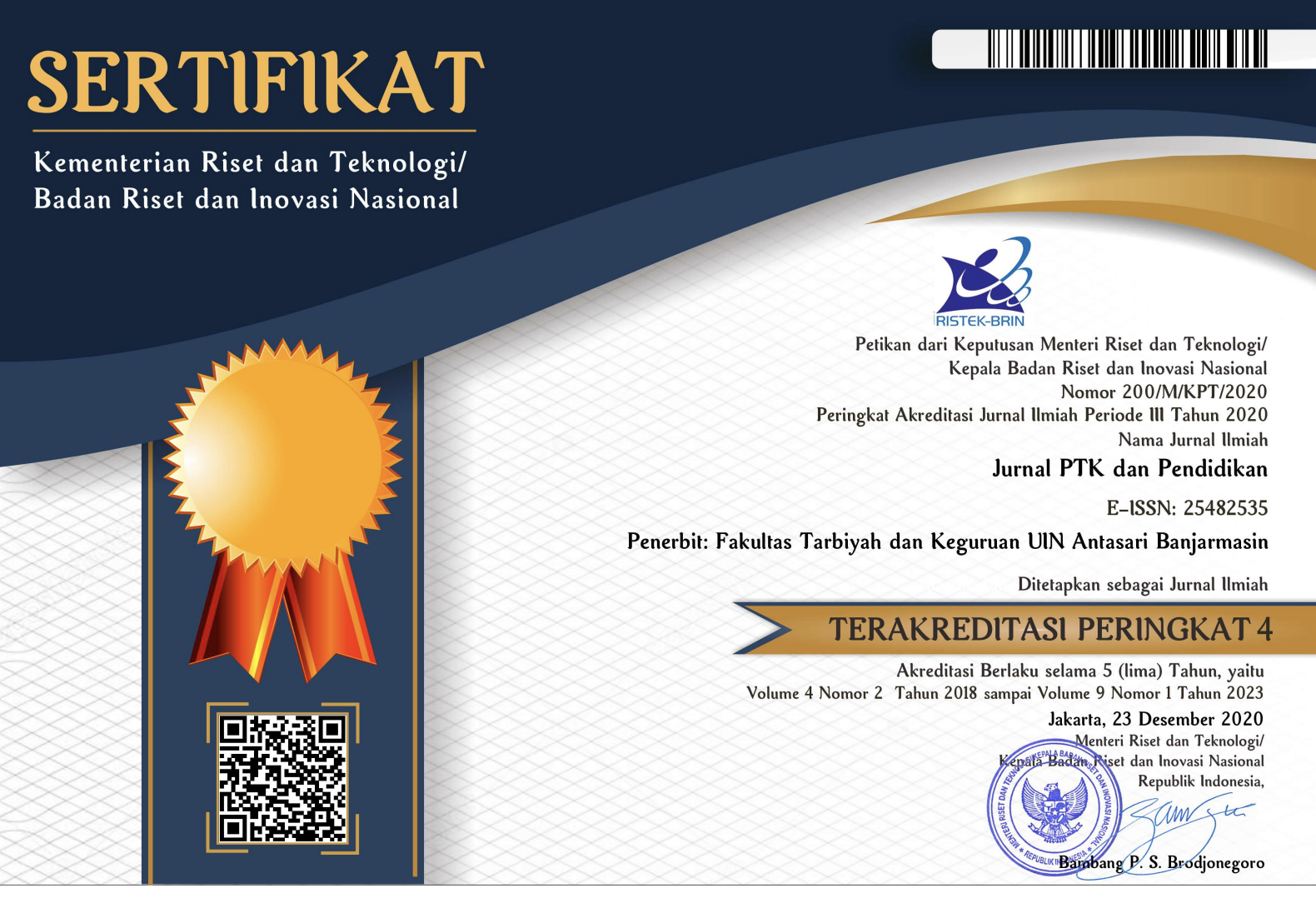Improving Students’ Learning Outcomes Through The Use of Substitution Drills Method in Simple Present Tense Material The 10th Grade Of Social Science MAN 1 Banjarmasin Academic Year 2018/2019
DOI:
https://doi.org/10.18592/ptk.v5i2.3737Abstract
The research about the use of substitute drills learning methods on simple present tense has been carried out which aims to know (1) the increasing activities in implementation classroom action, (2) the increasing student learning outcomes and (3) the student responses in the learning activity by using the substitutions drills strategy. The research conducted a classroom action research design (CAR) with two cycles. Each cycle consists of planning, implementing actions, observing and evaluating, and analyzing and reflecting. The research subjects were the 34 students of 10th grade of social science. Data were collected through observation techniques, learning achievement tests, and questionnaire distribution. Data were analyzed with quantitative descriptive analysis techniques and qualitative analysis. Based on the results of research, by using learning substitutions drills method on simple present tense material can increase the activities of implementing classroom actions and student learning outcomes.References
Agustini, I.M.N. (2015). Teaching Speaking Through Substitution Drills to The Seventh Grade Students of SMP N 3 Gianyar Academic Year 2014/2015. Jurnal Pendidikan. 1(1): 7-8.
Arikunto, S. (2010). Prosedur Penelitian: Suatu Pendekatan Praktik, Edisi revisi, Cet. 14. Jakarta: Rineka Cipta.
Penny, U. (1988). Grammar Pratice Activities: A Pratical Guide for Teachers.United Kingdom: Cambridge University Press
Downloads
Published
2020-06-23
How to Cite
Fakhrunisa, F. (2020). Improving Students’ Learning Outcomes Through The Use of Substitution Drills Method in Simple Present Tense Material The 10th Grade Of Social Science MAN 1 Banjarmasin Academic Year 2018/2019. Jurnal PTK Dan Pendidikan, 5(2). https://doi.org/10.18592/ptk.v5i2.3737
Issue
Section
Articles
License
- The right to publication of all journal material published on the Jurnal PTK dan Pendidikan website is held by the editorial board with the author's knowledge (moral rights remain the property of the author).
- The formal legal provisions for access to digital articles of this electronic journal are subject to the terms of the Creative Commons CC BY 4.0 DEED Attribution International (CC BY) license. This license enables reusers to distribute, remix, adapt, and build upon the material in any medium or format, so long as attribution is given to the creator. The license allows for commercial use.
- Printed and electronic published manuscripts are open access for educational, research and library purposes. In addition to these objectives, the editorial board shall not be liable for violations of copyright law.






